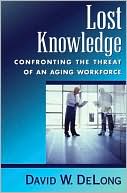Category Books
- Fiction Books & Literature
- Graphic Novels
- Horror
- Mystery & Crime
- Poetry
- Romance Books
- Science Fiction & Fantasy
- Thrillers
- Westerns
- Ages 0-2
- Ages 3-5
- Ages 6-8
- Ages 9-12
- Teens
- Children's Books
- African Americans
- Antiques & Collectibles
- Art, Architecture & Photography
- Bibles & Bible Studies
- Biography
- Business Books
- Christianity
- Computer Books & Technology Books
- Cookbooks, Food & Wine
- Crafts & Hobbies Books
- Education & Teaching
- Engineering
- Entertainment
- Foreign Languages
- Game Books
- Gay & Lesbian
- Health Books, Diet & Fitness Books
- History
- Home & Garden
- Humor Books
- Judaism & Judaica
- Law
- Medical Books
- New Age & Spirituality
- Nonfiction
- Parenting & Family
- Pets
- Philosophy
- Political Books & Current Events Books
- Psychology & Psychotherapy
- Reference
- Religion Books
- Science & Nature
- Self Improvement
- Sex & Relationships
- Social Sciences
- Sports & Adventure
- Study Guides & Test Prep
- Travel
- True Crime
- Weddings
- Women's Studies
Lost Knowledge: Confronting the Threat of an Aging Workforce » (1st Edition)

Authors: David W. DeLong
ISBN-13: 9780195170979, ISBN-10: 0195170970
Format: Hardcover
Publisher: Oxford University Press, USA
Date Published: August 2004
Edition: 1st Edition
Author Biography: David W. DeLong
David W. DeLong is a research fellow at the Massachusetts Institute of Technology's AgeLab and an adjunct professor at Babson College where he teaches a course on "Leading Change." He has consulted and lectured in many countries and is a widely published writer whose work has appeared in leading journals and magazines.
Book Synopsis
Because the baby boomers have worked through a period of unprecedented technological change, and many have spent a big part of their career at one workplace, as they begin to retire, much irreplaceable knowledge will follow them to Florida and Arizona. DeLong (Massachusetts Institute of Technology) asks managers why they should care, how specific knowledge might vanish from their organization, the impact the loss would have, and how to retain critical knowledge when the knower moves on. Annotation ©2004 Book News, Inc., Portland, OR
Library Journal
As long-term members of the workforce retire, what happens to their knowledge and skills? DeLong (Executive Support Systems: The Emergence of Top Management Computer Use), a research fellow at the MIT AgeLab and adjunct professor at Babson College, studies the effects of lost knowledge. The issues he addresses here include why organizations should care about the threat of lost knowledge, the different ways that knowledge disappears, and the effect of lost knowledge on performance. Most important, it considers how organizations can retain more critical knowledge in the face of major turnover, owing not only to an aging workforce but to increased attrition among mid-career employees. Solutions to the problem presented here include storytelling, mentoring, interviews/videotaping, and training. DeLong makes his points by drawing on case studies, e.g., owing to early retirement, NASA engineers lost knowledge on how to land on the moon. Extensive chapter notes list sources for further reading. An important, timely book; highly recommended for academic libraries.-Lucy Heckman, St. John's Univ. Lib., Jamaica, NY Copyright 2004 Reed Business Information.
Table of Contents
| 1 | The landscape of lost knowledge | 11 |
| 2 | Diagnosing the strategic impacts of lost knowledge | 26 |
| 3 | A strategic framework for action | 43 |
| 4 | Developing an HR infrastructure for knowledge retention | 57 |
| 5 | Improving the transfer of explicit knowledge | 81 |
| 6 | Transferring implicit and tacit knowledge | 101 |
| 7 | Applying IT to capture, store, and share intellectual capital | 119 |
| 8 | After the knowledge is gone | 143 |
| 9 | Stemming the flow of lost knowledge : stories of early adopters | 163 |
| 10 | Launching knowledge retention initiatives : principles for action | 171 |
| 11 | Overcoming organizational barriers to knowledge retention | 189 |
| 12 | Creating the future : thinking strategically about knowledge retention | 217 |
Subjects
 Careers & Employment
Careers & Employment  Careers & Employment
Careers & EmploymentBusiness Books
 Human Resources
Human Resources  Human Resources - Intellectual, Capital & Knowledge Management
Human Resources - Intellectual, Capital & Knowledge ManagementBusiness Books
 Management & Leadership
Management & Leadership  Management - General & Miscellaneous
Management - General & MiscellaneousBusiness Books
 Management & Leadership
Management & Leadership  Organizational Behavior
Organizational BehaviorNonfiction
 Social Sciences
Social Sciences  General & Miscellaneous
General & MiscellaneousScience & Nature
 Social Sciences
Social Sciences  General & Miscellaneous
General & MiscellaneousSelf Improvement
 Aging
Aging  Middle Age
Middle AgeSelf Improvement
 See All
See All  Self - Improvement
Self - ImprovementSocial Sciences
 General & Miscellaneous
General & Miscellaneous  Gerontology
Gerontology
